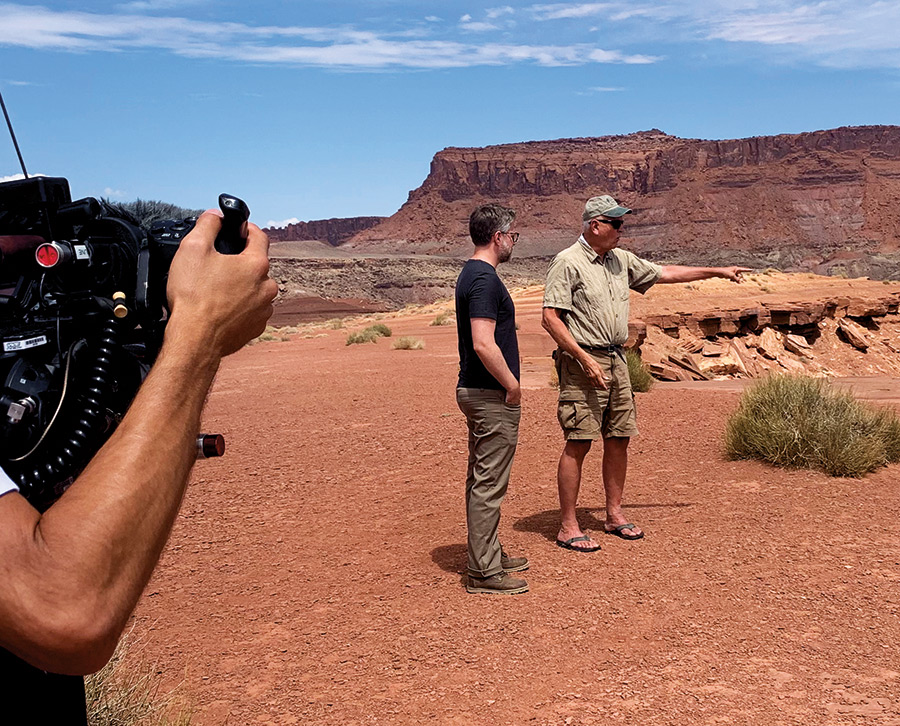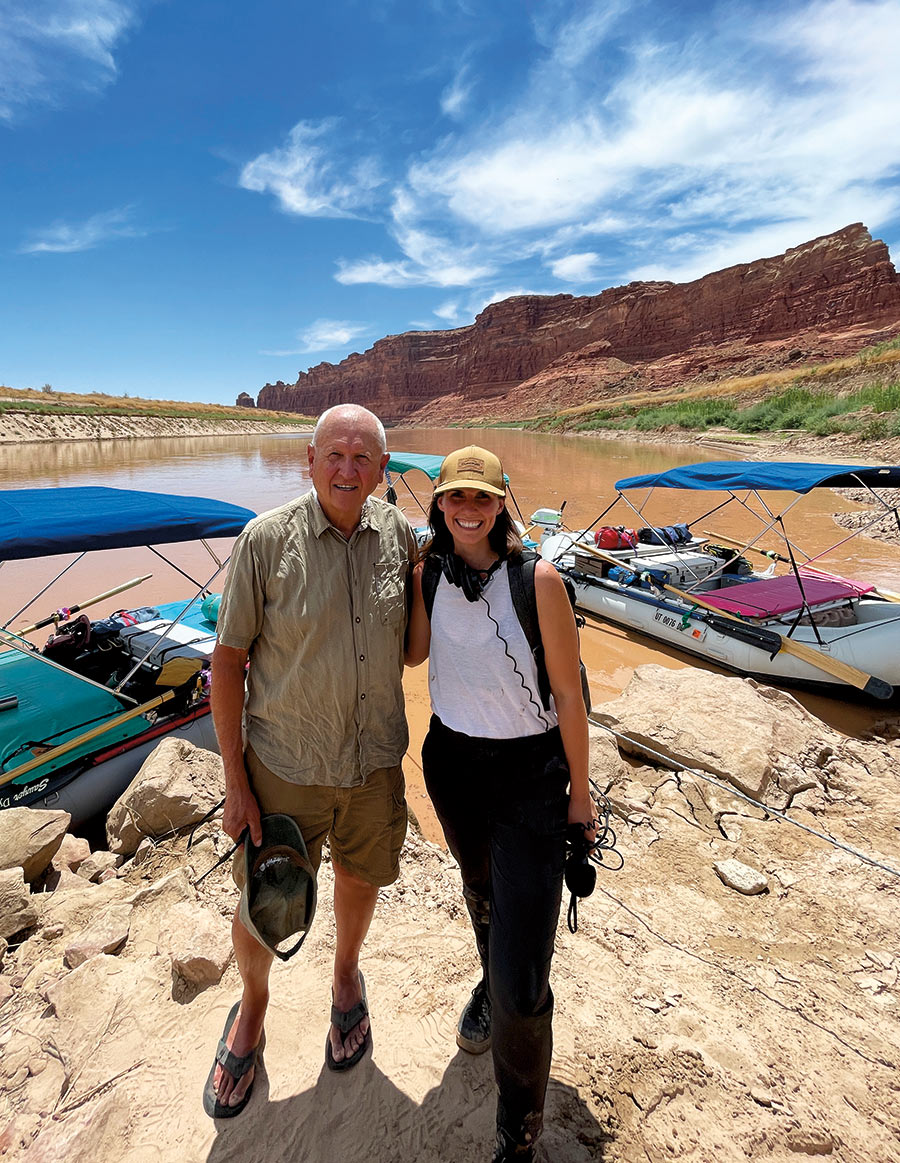Vice Shines Its Spotlight
In August, Vice News Tonight, the Emmy-winning TV program that showcases in-depth and often underreported stories, aired a six-and-a-half-minute report that focused on the Colorado River and how its reduced flow will affect millions. As of press time, more than 1.5 million people have watched the digital version of the report on YouTube.
Schmidt was a central character of the piece, appearing on screen to talk with Vice News correspondent Josh Hersh as Schmidt rowed a camera crew down the Colorado River.
“We have lived with the imagination that there is more water to develop, and so we can increase development, and it won’t hurt anybody,” Schmidt tells Hersh. “But it is a zero-sum game. There’s not any more extra water to develop.”
As Schmidt and Hersh talked in front of the camera, another Bucknellian worked behind the scenes to craft the piece: producer Sarah Svoboda ’10.
Before joining Vice News in early 2020, Svoboda was a senior newsgathering and White House producer for BBC News in Washington.
As she began finding voices to help tell the story of the Colorado River, Svoboda tracked down an expert to talk about water levels at the Hoover Dam’s Lake Mead as well as a farmer affected by water shortages. Next, she needed someone who could discuss the science behind what was happening on the Colorado.

“I was trying to find a voice who has been an expert in this field, and Jack’s name kept popping up,” Svoboda says. “He was excellent to speak to. You can tell this is something that he’s been totally immersed in for quite some time.”
As she prepared to call Schmidt to ask whether he would participate in the piece, Svoboda reviewed his CV. Under “education,” the political science major saw something familiar.
“I saw his bio and said, ‘Oh, you went to Bucknell!’ ” she says. “It was a moment of connection. We talked about geology classes I had taken and his time at the school. It was nice.”
Like Schmidt, Svoboda believes in showing, not telling, to convey a message.
So she asked Schmidt whether he would take her and the Vice team down the river for the piece, and Schmidt was on board. When the boat’s engine droned so loud that conversation became hopeless, Schmidt agreed to kill the motor and take up the oars so he could talk while they made progress downriver.
“It was great to be talking to an expert about his field of expertise, the Colorado River, while quite literally on it,” Svoboda says. “After I watch any newscast, I’ll think, ‘What’s the thing I most remember about that?’ And I find it’s the stories that take you to a place and show you something. That’s always what hits home the hardest.”
If Vice News stories have a common theme, it’s a mix of patience and authenticity. When you don’t have to cram a complex topic into a 90-second piece for the evening news, there’s time to dive deeper, to document a subject’s natural reactions, to let the scene unfold naturally and present real moments to the audience.

Svoboda and the Vice team found one of those real moments when meeting Schmidt at a takeout spot in Hite, Utah. They walked along a spot on the Colorado River where rafts enter and exit the water. It was a location Schmidt had visited many times before but hadn’t seen in a while.
As Schmidt approached, the cameras captured his authentic reaction to seeing how low the river had fallen. It wasn’t long ago that trucks could back right into the water to offload rafts. Now, boats entering and exiting the water must be carefully rolled across inflatable tubes so they aren’t dragged along dirt and rocks — the latest example of humans trying to salvage what’s left of the river.
“What a mess. What an absolute mess,” Schmidt says in the piece. “I am stunned by how horrible this is.”
But despite his scientifically based fears about the future of the Colorado River, Schmidt still has hope that a motivated group of stakeholders and decision-makers can see how humans have fundamentally changed the river and that it’s not too late to reverse course. — Bryan Wendell